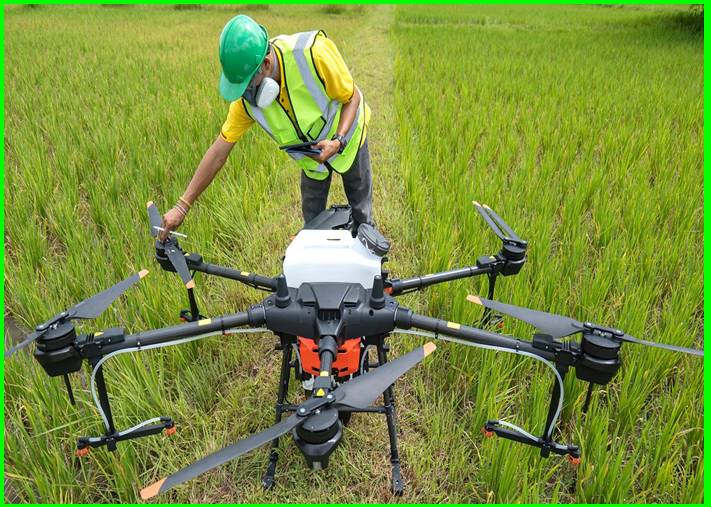Boosting Yields: Innovative Methods for Ag Productivity
The agricultural industry continues to evolve, with farmers and producers seeking innovative methods to boost yields and enhance productivity. In this blog post, we’ll explore a range of groundbreaking strategies and technologies that are revolutionizing agribusiness and paving the way for sustainable, high-yield farming.
Embracing Precision Agriculture
Precision agriculture is a game-changer in modern farming, leveraging advanced technologies such as GPS, drones, and sensors to optimize field management. By collecting real-time data on soil conditions, moisture levels, and crop health, farmers can make informed decisions, leading to precise application of resources like fertilizers and pesticides. The result? Higher yields, reduced environmental impact, and improved resource efficiency.
Leveraging Genetic Innovation
Advances in genetic engineering and crop breeding have opened up new frontiers in boosting yields. Traits such as disease resistance, drought tolerance, and enhanced nutritional value are being incorporated into crop varieties, enabling farmers to cultivate resilient, high-yielding plants. From genetically modified organisms (GMOs) to gene editing techniques like CRISPR, these innovations hold the potential to transform agricultural productivity and address global food security challenges.
Implementing Controlled Environment Agriculture
Controlled environment agriculture, including hydroponics, aquaponics, and vertical farming, represents a paradigm shift in ag productivity. By creating optimized growing conditions within controlled environments, growers can achieve year-round production, minimize water usage, and maximize yields per square foot. This approach not only mitigates the impacts of climate change but also offers a sustainable solution for meeting the increasing demand for fresh produce in urban areas.
Integrating Sustainable Fertilization Techniques
Innovative fertilization techniques are becoming increasingly vital for sustainable agriculture, particularly in unique regions such as Salt Lake City where soil conditions and climate can present distinct challenges. One emerging method is the utilization of enhanced-efficiency fertilizers that are specially formulated to release nutrients in a manner that matches crop uptake, minimizing nutrient loss to the environment.
This approach is significantly beneficial in the saline-rich soils of Salt Lake City, where traditional fertilizers may not be as effective due to high salinity levels. By adopting these advanced fertilization strategies, farmers in the area can optimize nutrient management, leading to improved crop health and yields while also protecting the delicate local ecosystem.
Harnessing Data Analytics and AI
The integration of data analytics and artificial intelligence (AI) has empowered farmers to make data-driven decisions that optimize every aspect of their operations. From predictive modeling for crop forecasting to automated machinery control, AI and machine learning algorithms are streamlining processes, reducing waste, and ultimately driving productivity gains. This data-centric approach is instrumental in fine-tuning farming practices for maximum yield potential.
Exploring Biological Innovations
Biological innovations, such as biofertilizers, biopesticides, and microbial seed treatments, are gaining prominence as sustainable alternatives to conventional agrochemicals. These biological inputs work in harmony with the ecosystem, promoting soil health, enhancing nutrient uptake, and combating pests and diseases. As farmers strive for more ecologically friendly approaches, biological innovations offer promising avenues for improving yields while minimizing environmental impact.
Adapting to Climate-Resilient Practices
Climate change presents formidable challenges to ag productivity, necessitating the adoption of climate-resilient practices. Agroforestry, cover cropping, and conservation tillage are just some examples of sustainable techniques that help mitigate the impacts of extreme weather events and shifting climatic patterns. By fostering resilience in their farming systems, producers can safeguard yields against adverse environmental conditions and contribute to long-term sustainability.
Engaging in Collaborative Knowledge Sharing
The dissemination of knowledge and best practices among farmers is a crucial factor in boosting ag productivity. Collaborative platforms, farmer networks, and digital extension services play pivotal roles in facilitating information exchange, empowering farmers with the latest insights and strategies. By fostering a culture of continuous learning and collaboration, the agricultural community can collectively drive innovation and elevate yields across diverse farming landscapes.
Conclusion
Innovative methods for ag productivity are reshaping the landscape of modern agriculture, offering promising avenues for sustainable, high-yield farming.
From precision agriculture and genetic innovation to data-driven decision-making and climate-resilient practices, the convergence of cutting-edge technologies and ecological principles is propelling the industry toward a future of enhanced productivity and resilience. As farmers and agribusinesses embrace these innovations, they stand to unlock new levels of efficiency, profitability, and sustainability in their pursuit of feeding an ever-growing global population.
How Technology Empowers Healthcare Practice Management
Boosting Yields: Innovative Methods for Ag Productivity
